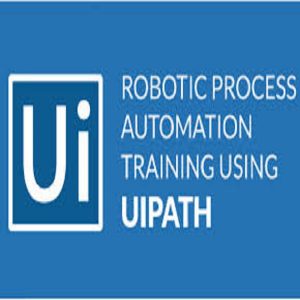Instructor-led Python Programming live online classes
Date |
Duration |
Timings |
|---|---|---|
| SOLD OUT |
||
| May 24th | SAT & SUN (4.5 Weeks) Weekend Batch | ⚡FILLING FAST Timings – 11:00 AM to 12:00 PM (EDT) |
Adda For Your Certification Needs
CertAdda’s Python programming certification training is curated by top industry experts. This extensive Python online course is created to help you master important Python programming concepts such as Data Operations and File Operations. This Python course is live, instructor-led & helps you master various Python libraries such as Pandas, Numpy and Matplotlib to name a few, with industry use cases. Enroll now to learn Python online & be a certified Python professional with CertAdda.
$499.00 Original price was: $499.00.$449.00Current price is: $449.00.
Date |
Duration |
Timings |
|---|---|---|
| SOLD OUT |
||
| May 24th | SAT & SUN (4.5 Weeks) Weekend Batch | ⚡FILLING FAST Timings – 11:00 AM to 12:00 PM (EDT) |
Learning Objective: In this module, you will get to know about the basic concepts of Python.
Topics:
Hands-On:
Learning Objective: Perform operations on Files and learn different types of sequence structures, their usage, and execute sequence operations.
Topics:
Hands-On:
Learning Objective: Learn about different types of Functions and various Object-Oriented concepts such as Abstraction, Inheritance, Polymorphism, Overloading, Constructor, and so on.
Topics:
Hands-On:
Learning Objective: Learn how to create generic python scripts, address errors/exceptions in code, and extract/filter content using regex.
Topics:
Hands-On:
Learning Objective: Get familiar with the basics of Data Analysis using two essential libraries: NumPy and Pandas. You will also understand the concept of file handling using the NumPy library.
Topics:
Hands-On:
Learning Objective: Gain in-depth knowledge about analyzing datasets and data manipulation using Pandas.
Topics:
Hands-On:
Learning Objective: Learn Data Visualization using Matplotlib.
Topics:
Hands-On:
Learning Objective: In this module, you will learn GUI programming using ipywidgets package.
Topics:
Hands-On:
Learning Objective: Learn to design Python Applications.
Topics:
Learning Objective: Learn to design Python Applications.
Topics:
Case Study #2: Domain: Marketing
Problem Statement: Bank of Portugal runs a marketing campaign to offer loans to clients. The loan is offered to only clients with professions. A list of successful campaigns (with client data) is given in the attached dataset. You must come up with a program which reads the file and builds a set of unique profession list and when the profession data of the client is fed, the system must be able to tell whether the client in question is eligible for the loan.
Case Study #3: Domain: E-Commerce
Problem Statement: GoodsKart—largest e-commerce company in Indonesia with a revenue of $2B+ acquired another e-commerce company FairDeal. FairDeal has its own IT system to maintain records of a customer, sales, etc. For ease of maintenance and cost savings, GoodsKart is integrating customer databases of both the organizations; hence customer data of FairDeal has to be converted in GoodsKart Customer Format.
Case Study #4: Domain: Education
Problem Statement: You are a data analyst with University of California,? USA University has data of Maths, Physics and Data Structure score of sophomore students. This data is stored in different files. University has hired a data science company to do an analysis of scores and find if there is any correlation of score with age, ethnicity, etc. Before the data is given to the company, you are required to do data wrangling.
Case Study #5: Domain: Retail
Problem Statement: BigMart is one of the biggest retailers in Europe and has operations across multiple countries. You are a data analyst in the IT team of BigMart. Invoice and SKU wise Sales Data for the Year 2011 is shared with you. It would help if you prepared meaningful charts to showcase the various sales trends for 2011 to top management.
Certification Project: Domain: 911 Calls
Problem Statement: For this capstone project, we will be analyzing 911 call data from Kaggle. This data is from Montgomery County in the Pennsylvania State of USA. 911 is the most important social security feature in the USA. Citizens can call on 911 in case of any emergencies such as crime, medical, traffic, fire, etc. As a data analyst, you must analyze and visualize the data and answer the question in the section.






